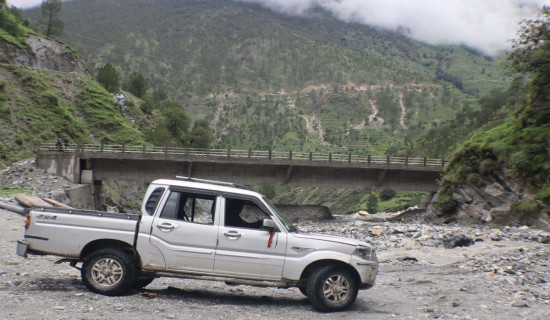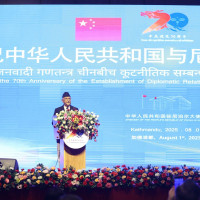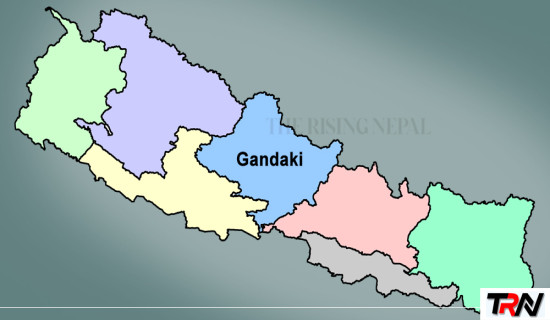- Saturday, 2 August 2025
Stay Safe From Heat
It's only April and the Tarai is already in the grip of intense heat. Summer in Nepal is normally a period from early June through August. What should be a season of spring following the retreat of winter has given the impression that climate change is bringing oppressive heat earlier and causing it to last longer. This means that we are going straight from winter to summer, with the shrinking duration of spring. The punishing heat from early morning has disrupted the routine lives of the people, worrying them about what will happen during the peak of the summer, which is still months away.
According to a news report carried by this daily on Thursday, the temperature has become so hot in Saptari that citizens there are finding it extremely difficult to step out of their houses before nightfall. This explains why the marketplaces and streets are wearing a deserted look throughout the day. The oppressive heat has already started taking its toll on people's health, with a significant rise in the number of patients at the Rajendra Narayan Hospital in the district's Rajbiraj. Most of the patients have reported stomach ailments, fever, diarrhea, vomiting, and respiratory infections.
Accompanying the rising temperature is a rise in windy days. Winds blowing more fiercely eject more dust into the atmosphere. Areas such as Sarlahi's Malangwa, where the Postal Highway has been left unpaved for years now, have become the source of limitless dust engulfing the entire neighbourhood. What's more, the outbreak of fire incidents can compound the misery. Fire fanned by the winds can be catastrophic, with fire incidents gutting many properties and even entire settlements almost every year.
With the temperature rise, people are also experiencing health problems such as headaches, dizziness, and lethargy. Farmers, labourers, and those whose livelihood requires them to work under the sun are the worst affected. Doctors have advised staying indoors during peak daylight and drinking plenty of water. There is one more headache that is giving people sleepless nights: a surge in mosquitoes. That mosquito bites can be a serious health hazard was evident in August 2022 when hospitals in the Kathmandu Valley became overburdened with dengue patients needing hospitalisation.
Additionally, cases of drowning, especially those involving children, also spike during this time. Ponds, water bodies artificially built for brick kilns or fish farming, and rivers are the choices individuals prefer to go to in their efforts to beat the heat. And the news of some, not skilled in swimming, drowning, makes daily headlines during this time.
The fact that rising temperatures bring with them untold problems necessitates that people, from their capacity as well as the government, become extra vigilant and even go the extra mile to take precautionary measures and keep citizens safe from danger. The government, for its part, should spring into action to quickly pave the broken or under-construction roads as well as other infrastructure lying in ruins, which radiate a stream of dust. It is also imperative to adequately staff hospitals and health institutions with health personnel. Why? Because hot days send more and more people to hospitals, and a lack of trained health workers to attend to them makes things worse.
















